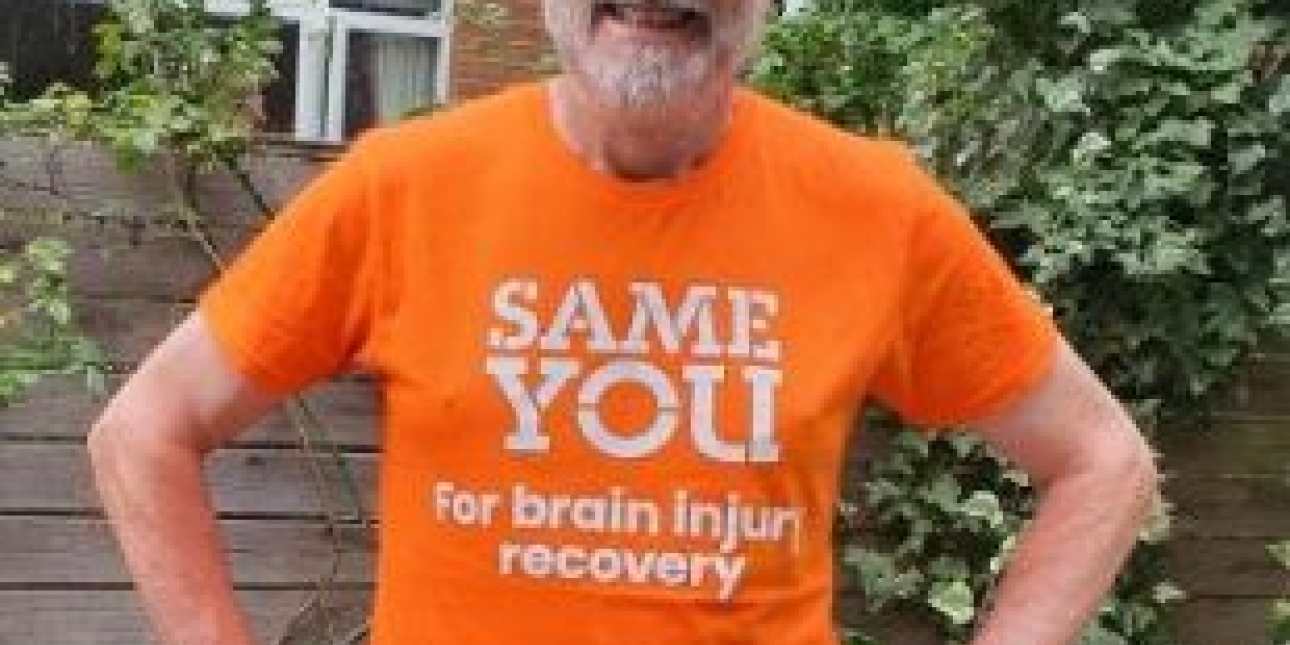PUBLIC RELATIONS
Wednesday 9th December 2020
Coming back from Covid
It’s never a good idea for a PR professional to be the news. We’re supposed to help others get their message out, not talk about ourselves.
So it was an odd experience to be on the BBC’s evening TV news. What got me there? I had survived a bad attack of Covid that first affected my breathing, then my brain.
I was a rare survivor. About two thirds of those with the same complications at the same time – in March and April – died, and most of the rest are still ill.
It began when I walked into hospital in March, convinced I would be home in a few days. I’d been feeling ropy for a week, but it was my daughter – a doctor – who insisted I call 111.
They told me to get to hospital. My wife drove me and then went into isolation. She was unable to visit or see me, and I wasn’t much of a communicator throughout the next couple of weeks.
The medical team found I had Covid and took me to an isolation ward. Soon, with my oxygen levels low, I was put on breathing apparatus.
I was on oxygen for several days. After that, my memory is blank. I don’t know why. What I do know is that if it was hard for me, it was harder for my wife and three children.
They were prevented from visiting me by Covid restrictions, so to find out how I was they had to call to the doctors – who were generous with their time and hugely supportive despite the pressure they were under.
My youngest daughter flew home from Latin America where she was working. My son in Oxford set up daily calls for the family. Each day they talked to each other, trying to stay calm and hoping for good news.
I seemed to be getting better. Doctors took me off the breathing apparatus. I was moved to a ward in preparation for going home.
But without warning, I had a stroke. My left side was uncoordinated and I wasn’t making sense. As they investigated, doctors noticed blood clots in both lungs and legs, as well as my brain.
I was rapidly put on strong blood-thinning drugs. But despite these, I had another stroke, this time much larger and affecting my right side.
The medical team upped the dose of blood thinners to very high levels. Then they watched and waited. There was little more they could do. They told my wife they were monitoring me closely. She understood. It had been serious before. Now it was touch and go.
But I slowly turned the corner. I had no more strokes. My clots dissolved thanks to the blood thinners. I was in the right place and in good hands.
It may sound a strange choice of word, but I now consider myself lucky. I was in hospital when I had my strokes. I was in the hands of a superb team of expert doctors and health care workers.
After a further 10 days in the rehabilitation ward, I was driven home for a tearful reunion with my family. It was the day of the week when people went onto the street to applaud the NHS. I joined. Neighbours, who knew what I had been through, turned and applauded me. I was deeply moved. I was alive and with my family. What more did I need?
What I needed was concentrated care to help me overcome stroke deficits; to help me walk properly, and to manage my damaged sight.
An overstretched NHS could not provide it. But I was amazingly lucky. I was contacted by a specialist team offering therapy over the internet.
The phone call inviting me to take part in therapy was from N-ROL – an innovative solution to the problem of people with stroke and other brain injuries spending less time in hospital because of Covid.
The N-ROL therapy was funded by SameYou – a charity set up by Emilia Clarke. Emilia survived two life threatening brain haemorrhages while working on Game of Thrones and decided to start SameYou to increase awareness of brain injury.
Sometimes good ideas come when they are least expected, or when the pressure is on. N-ROL and SameYou did not just provide support to me and other people who had suffered strokes. They created a new way of providing help to people who have suffered a brain injury.
It is hard to appreciate, but doctors are increasingly optimistic about finding better treatments for strokes and other brain injuries. However, as an increasing number of people survive major brain injury, there is a growing need for ongoing care and treatment.
NROL proved improvement is possible. It tapped into the latest research into brain plasticity showing that the brain can be ‘rewired’ after injury.
I am well on the way to recovery – one that many originally thought unlikely. I still have much work to do. But I am alive. I am enjoying time with my family. And I can express my deep gratitude to SameYou.
It’s not just gratitude I feel. It’s excitement. SameYou and UCL want to do more N-ROL programmes in the UK and beyond. As someone who has experienced it, I know how N-ROL can bring hope and direction when things are difficult. And with their virtual model, they can reach so many more people than traditional therapy attended in person.
But it does need more funding. And I’m determined to help.
If you’ve been moved in any way by this story, please donate. Your donation will help SameYou improve neurorehabilitation for many more.
You can donate here: https://www.justgiving.com/fundraising/paul-mylrea1.
And if you want to know more about SameYou, click here: https://www.sameyou.org/.
Thank you.

